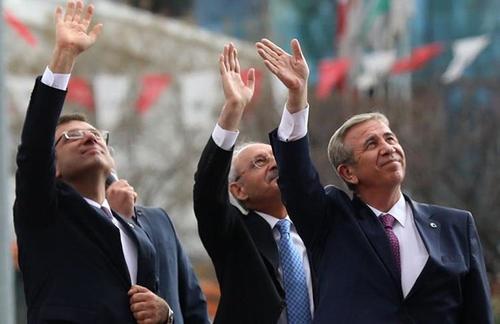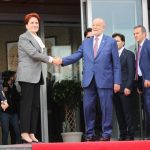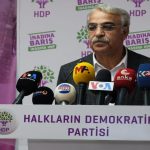(Reuters) – Turkish opposition leader Kemal Kilicdaroglu emerged on Monday as the main challenger to President Tayyip Erdogan in landmark elections expected on May 14, after a six-party alliance picked him as expected as its presidential candidate.
Kilicdaroglu, 74, head of the country’s second-biggest party, aims to emerge from Erdogan’s shadow and oust the president after a two-decade reign that has transformed the NATO member country and major emerging market economy.
“Our table is the table of peace. Our only goal is to take the country to days of prosperity, peace and joy,” Kilicdaroglu, chairman of the Republican People’s Party (CHP), told about 2,000 people gathered in Ankara.
“Will govern Turkey with consultation and consensus.”
Polls suggest that the presidential and parliamentary votes in two months will be tight, with the opposition bloc running slightly ahead of the governing alliance.
The bloc has vowed to reverse many of Erdogan’s policies on the economy, civil rights and foreign affairs in what many see as the most consequential election in the republic’s 100-year history.
A former civil servant, Kilicdaroglu could take advantage of years of economic crisis and soaring inflation, as well as last month’s devastating earthquakes in the south that killed more than 46,000 people brought criticism of the state’s response.
Yet some doubt that the feisty former economist who climbed the ranks as a corruption-fighter can defeat Erdogan, Turkey’s longest-serving leader whose campaigning charisma has helped achieve more than a dozen election victories.
Voters will decide not only who leads Turkey but how it is governed, where its economy is headed and what role it may play to ease conflict in Ukraine and the Middle East.
ALLIANCE DRAMA
Kilicdaroglu’s prospects could be boosted by a last-minute deal on Monday to reunite the opposition bloc that had splintered on Friday when the big right-wing IYI Party opposed his candidacy.
After a tense 72 hours, the alliance met again on Monday and accepted an IYI proposal that Ekrem Imamoglu and Mansur Yavas, the popular CHP mayors of Istanbul and Ankara respectively, would later be appointed as vice presidents.
Kilicdaroglu, in his speech late on Monday, said the leaders of the other five opposition parties would also serve as vice presidents.
Reflecting concerns over Kilicdaroglu’s ability to win, IYI leader Meral Aksener had on Friday left the alliance, saying it should choose one of the mayors to take on Erdogan because they would fare better.
But she returned on Monday.
“This is a massive political coup against Erdogan and should hand the opposition a decisive win in the first round on May 14,” said Hakan Akbas, managing director of Strategic Advisory Services, an Istanbul-based political advisory.
HISTORIC VOTE
Even before the earthquakes, Erdogan had seen his popularity dip amid a cost-of-living crisis in which inflation soared as high as 85%. But pollsters on Friday said that Erdogan and the AK Party (AKP) appeared to have largely retained their support.
Erdogan has never faced a serious electoral threat since his AKP were elected in 2002. Since then he has increasingly shaped Turkey to his vision of a pious, conservative society and assertive regional military power.
The opposition has pledged to revoke the powerful executive presidency he created, returning Turkey to parliamentary democracy and restoring independence to a central bank which implemented his call for low interest rates – driving economic growth but crashing the lira and stoking inflation.
The opposition has cooperated more closely since its success in 2019 in taking control of Istanbul, Ankara and other big cities from the AKP in elections.
“I am here to witness history in the making,” said retired teacher Devlet Kus, who attended the candidacy announcement ceremony.
“Everything will change for the better and our country will be free. Our children will live in a more free and happier country when the opposition wins.”



